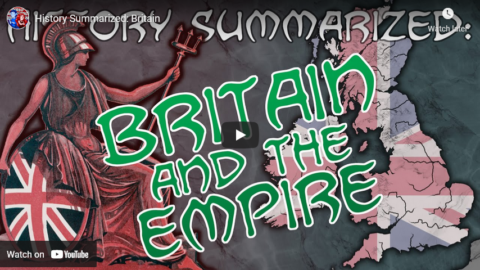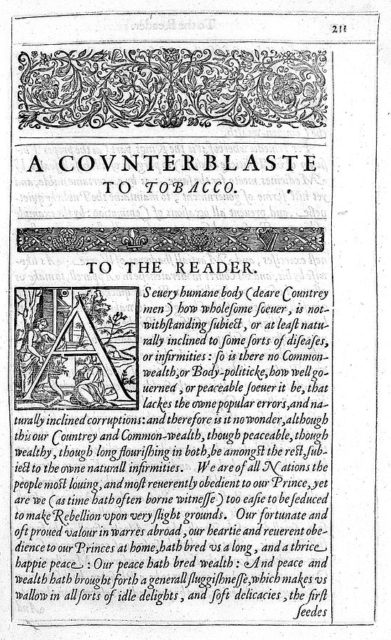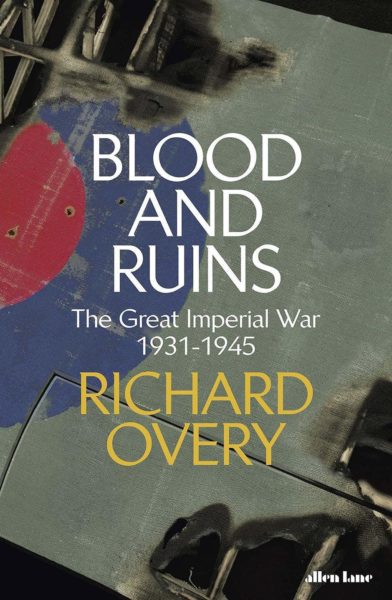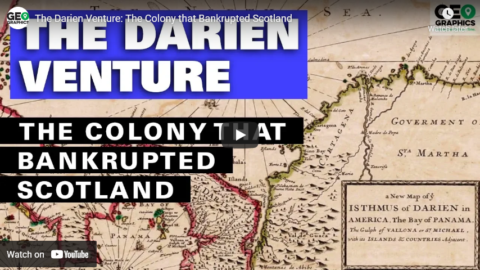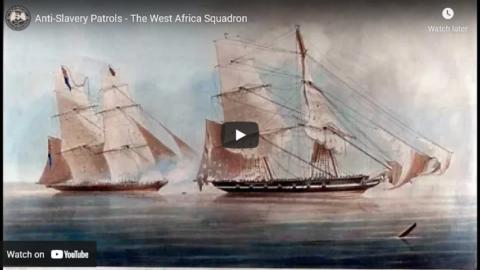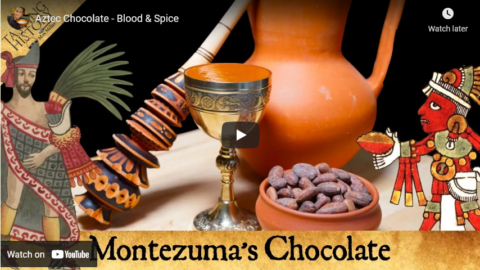Despite the remorseless filleting of the lyrics to “O Canada”, every year or two some grievance is lodged against the two or three remaining lines of the original. Thus:
O Canada!
Our home and native land…Which should of course be:
O Canada!
Our home on natives’ land…Game as I am to disparage the senior Dominion’s anthem, I have to say it’s effortlessly outpaced in insipidity by …
Australians all let us rejoice
For we are young and free
We’ve golden soil And wealth for toil
Our home is girt by sea…“Girt” is famously the only point of lyric interest in “Advance Australia Fair”. Peter Dodds McCormick wrote the song back in 1878, which meant, by the time they decided to make it the official anthem twenty years ago, most of the verses were unusable. No point shaking off the old cultural cringe of “God Save The Queen” only to start singing couplet after couplet about “gallant Cook from Albion” and “true British courage” and “old England’s flag”. And how about this quatrain?
Britannia then shall surely know
Beyond wide ocean’s roll
Her sons in fair Australia’s land
Still keep an English soul …So, after all the colonial sucking up was excised from the lyric, “girt” was pretty much all that was left. A few years ago, incidentally, there was an Aussie satirical magazine named Girt in its honor: I signed on with them but it folded after one issue. Don’t believe I ever got the check. Or cheque. I try not to be biased against “Advance Australia Fair” on that account, but honestly, was there ever such a gulf between the spirit of a great nation and its official musical embodiment?
Mark Steyn, adapted from A Song for the Season, 2008.
December 16, 2021
QotD: “Advance Australia Fair”
December 10, 2021
History Summarized: Britain and the Empire
Overly Sarcastic Productions
Published 20 Aug 2021How is it that the history of some islands off the northern coast of Europe balloons into a worldwide history? Empire is how! Let’s dig into the history of Britain since Union of the Crowns of England and Scotland in 1603, and follow that narrative through the monumental rise and precipitous fall of the British Empire.
Special thanks to the community members on Discord who assisted me with my script: Corvin the Crow, Johnny, Jdedredhed, Joud, Jéuname, Klieg, RileyTheProcrastinator, The Missing Link, and thesleepingmeerkat
SOURCES & Further Reading: The Great Courses Lecture series Foundations of Western Civilization II: A History of the Modern Western World by Robert Buchols lectures 11, 12, 13, 14, 15, 18, 19, 20, 21, 22, 30, The History Of England volumes 3 Rebellion, 4 Revolution & 5 Dominion by Peter Ackroyd, Scotland: A Concise History by Fitzroy MacLean, The Great Cities in History by John Julius Norwich, A Concise History of Wales by Geraint H. Jenkins, Sea Power: The History and Geopolitics of the World’s Oceans by James Stavridis.
Our content is intended for teenage audiences and up.
PATREON: https://www.Patreon.com/OSP
PODCAST: https://overlysarcasticpodcast.transi…
DISCORD: https://discord.gg/osp
MERCH LINKS: http://rdbl.co/osp
OUR WEBSITE: https://www.OverlySarcasticProductions.com
Find us on Twitter https://www.Twitter.com/OSPYouTube
Find us on Reddit https://www.Reddit.com/r/OSP/
November 27, 2021
King James I and his hatred of tobacco smoking — “so vile and stinking a custom”
Anton Howes recounts some stories he uncovered while researching English patent and monopoly policies during the Elizabethan and Stuart eras:
… some of the most interesting proclamations to catch my eye were about tobacco. Whereas tobacco was famously a New World crop, it is actually very easy to grow in England. Yet what the proclamations reveal is that the planting of tobacco in England and Wales was purposefully suppressed, and for some very interesting reasons.
James I was an anti-tobacco king. He even published his own tract on the subject, A Counterblaste to Tobacco, just a year after his succession to the English throne. Yet as a result of his hatred of “so vile and stinking a custom”, imports of tobacco were heavily taxed and became a major source of revenue. Somewhat ironically, the cash-strapped king became increasingly financially dependent on the weed he never smoked. The emergence of a domestic growth of tobacco was thus not only offensive to the king on the grounds that he thought it a horrid, stinking, and unhealthy habit — it was also a threat to his income.
What I was most surprised to see, however, was just how explicitly the king admitted this. It’s usual, when reading official proclamations, to have to read between the lines, or to have to track down the more private correspondence of his ministers. Very often James’s proclamations would have an official justification for the public good, while in the background you’ll find it originated in a proposal from an official about how much money it was likely to raise. There was money to be made in making things illegal and then collecting the fines.
Yet the 1619 proclamation against growing tobacco in England and Wales had both. The legendary Francis Bacon, by this stage Lord High Chancellor, privately noted that the policy might raise an additional £3,000 per year in customs revenue. And the proclamation itself noted that growing tobacco in England “does manifestly tend to the diminution of our customs”. Although the proclamation notes that the loss of customs revenue was not usually a grounds for banning things, as manufactures and necessary commodities were better made at home than abroad, “yet where it shall be taken from us, and no good but rather hurt thereby redound to our people, we have reason to preserve”. Fair enough.
And that’s not all. James in his proclamation expressed all sorts of other worries about domestic tobacco. Imported tobacco, he claimed, was at least only a vice restricted to the richer city sorts, where it was already an apparent source of unrest (presumably because people liked to smoke socially, gathering into what seemed like disorderly crowds). With tobacco being grown domestically, however, it was “begun to be taken in every mean village, even amongst the basest people” — an even greater apparent threat to social order. James certainly wasn’t wrong about this wider adoption. Just a few decades later, a Dutch visitor to England reported that even in relatively far-flung Cornwall “everyone, men and women, young and old, puffing tobacco, which is here so common that the young children get it in the morning instead of breakfast, and almost prefer it to bread.”
[…]
Indeed, policymakers thought that the domestic production of tobacco would actively harm one of their key economic projects: the development of the colonies of Virginia and the Somers Isles (today known as Bermuda). Although James I hoped that their growth of tobacco would be only a temporary economic stop-gap, “until our said colonies may grow to yield better and more solid commodities”, he believed that without tobacco the nascent colonial economies would never survive. Banning the domestic growth of tobacco thus became an essential part of official colonial policy — one that was continued by James’s successors, who did not always share his more general hatred of smoking. Although the other justifications for banning domestic tobacco would soon fall away, that of maintaining the colonies — backed by an increasingly wealthy colonial lobby — was the one that prevailed.
November 15, 2021
“That is what I like about you Canadians … you are so ready to admit fault. It is a fine, if dangerous, national characteristic. You are all ashamed.”
John E. MacKinnon on the world’s first admittedly genocidal, terminally apologetic, “post-national” state … the entity that used to be known as the Dominion of Canada:
During one broadcast, [late CBC Radio host Peter] Gzowski recalled an incident that had occurred at the annual invitational golf tournament he hosted to benefit adult literacy programs across Canada. As one participant, standing next to Gzowski, leaned thoughtfully on his club, another drove a golf cart over his toes. Although it was unclear from the telling whether the cart-driver was American, the first golfer was obviously Canadian, since, shifting gingerly from foot to aching foot, he could only plead, “sorry”. Gzowski shared this anecdote with evident delight, since it struck him as so endearingly, because emblematically, Canadian.
But Gzowski’s soaring contentment with this view of his country and countrymen was no less emblematic. To Canadian nationalists of Gzowski’s era and ilk, the representative Canadian is no hewer of wood or carrier of water, no builder of bridges, roads and railways, no stormer of barricades or keeper of the peace, but a hobbled guest on a verdant fairway, eagerly apologizing for the pleasure of having his toes crushed. “That is what I like about you Canadians,” says Dr. Gunilla Dahl-Soot in Robertson Davies’s novel The Lyre of Orpheus, “you are so ready to admit fault. It is a fine, if dangerous, national characteristic. You are all ashamed.”
Over the past 200 years, notes Hungarian-born Canadian writer George Jonas, “we have been misled by science. Medicine became our hubris. Having learned to fix appendices, we thought we could fix history.” Today, in Canada, there is no clearer manifestation of this urge to renovate and repair the past than the vogue for apology. And no one has struck this posture of national self-abasement with quite the alacrity of Prime Minister Justin Trudeau. Just months after taking office, he apologized for the Komagata Maru incident in 1914, in which a ship carrying Sikhs, Muslims, and Hindus was sent back to Calcutta, where 20 died in a riot. In 2017, he apologized to Indigenous residential-school survivors in Newfoundland and Labrador, and, just days later, to LGBT Canadians for decades of “state-sponsored, systemic oppression.” A year later, he apologized for the execution, in 1864, of six Tsilhqot’in chiefs over a road-building dispute, and for a government refusal, in June, 1939, to allow into the port of Halifax the MS St. Louis, an ocean liner carrying more than 900 Jews fleeing Nazi Germany. In March, 2019, he apologized for the inhumane manner in which Inuit in northern Canada were treated for tuberculosis in the mid-20th century. Two months later, he exonerated Chief Poundmaker of the Poundmaker Cree, apologizing for the Chief’s conviction for treason more than 130 years before. Still at it in the spring of 2021, Trudeau issued a formal apology in the House of Commons for the internment of Italian-Canadians during the Second World War, even though many, it was subsequently revealed, were indeed hardcore fascists, loyal to an enemy in a time of war. Two weeks later, he lowered the Canadian flag for five months to mark the discovery of the remains of Indigenous children who died at residential schools.
In the midst of this flurry of breathy performances, the BBC asked, with more than a touch of arch obviousness, whether the Canadian Prime Minister might not perhaps apologize too much. And yet, in Trudeau, we simply have the apotheosis of that habit of abject contrition celebrated by Gzowskian nationalists. Under his government, it has become fashionable, even necessary, to apologize, not just for egregious historical episodes or policies, but for the existence of Canada itself. In an interview with the New York Times, Trudeau witlessly described the country that had so favoured him through a lifetime of privilege as “post-national”, suggesting that Canada as we know it had somehow served its purpose, extended itself beyond any warrantable use. And recently, not to be outpaced by more current styles of denunciation, he described Canada, “in all our institutions,” as “built around a system of colonialism, of discrimination, of systemic racism.” When China, responding to criticism of its brutal treatment of Muslim Uyghurs, lashed out at Canada for committing “genocide” against its own Indigenous population and subjecting Asian-Canadians to “systemic racism”, Canada’s political class was in no position to quibble — as its prime minister had already muttered his agreement to the claim that he presided over a genocide state.
This note of cringing repentance now echoes in the pronouncements of all of our institutions. No matter how admired our country may remain internationally, no matter how ardently people around the world long to immigrate here for a chance at a better life, our presumptive leaders are eager to scorn Canada as a meagre and regrettable conceit. That the confessional mode they favour has become so prevalent confirms what Christopher Lasch long ago diagnosed as the strain of narcissism that courses through contemporary culture, lending ready appeal to all such facile gestures of self-reproach. There is, indeed, no cagier career move for any Canadian academic, journalist, bureaucrat, or politician these days than to repudiate Canada, and with feeling.
November 1, 2021
Indochina and The Battle of Dien Bien Phu
The History Guy: History Deserves to Be Remembered
Published 29 Sep 2017The History Guy remembers how decolonization led to proxy war and the Battle of Dien Bien Phu in what is now known as Vietnam.
The episode discusses and presents historical photographs and film footage depicting events during a period of war, which some viewers may find disturbing. All events are described for educational purposes and are presented in historical context.
The History Guy uses images that are in the Public Domain. As photographs of actual events are often not available, I will sometimes use photographs of similar events or objects for illustration.
Patreon: https://www.patreon.com/TheHistoryGuy
The History Guy: Five Minutes of History is the place to find short snippets of forgotten history from five to fifteen minutes long. If you like history too, this is the channel for you.
Awesome The History Guy merchandise is available at:
https://teespring.com/stores/the-hist…The episode is intended for educational purposes. All events are presented in historical context.
#DienBienPhu #militaryhistory #thehistoryguy
October 19, 2021
QotD: Slaves and indentured servants in early Virginia
I saw from the start that some of Nikole [Hannah-Jones]’s 1619 rubbish merely exposed her utter ignorance of her subject. The blacks whom the Virginians bought from a Portuguese slave trader in 1619 were treated like whites – that is, they were treated as indentured servants who after 10 years were freed, given some farm tools, pointed at a plot of land and left to get on with it. (Some of them got on so well that before mid-century they were buying white and black indentured servants themselves to work their expanding acreages.)
One could justly say these early-arriving blacks were not treated exactly like poor English whites who – unless convicted of a crime – had always chosen to sign their ten-year indenture, to pay for transport across the Atlantic and survival while they found their feet. The closer analogy is to some Scottish whites. More than one clan chief sold some clansmen on indentures across the Atlantic when funds were low, and in 1707 a leading Scottish parliamentarian informed his peers that there was no need for them to fix the disastrous financial situation by accepting the English payment and voting their own abolition – Scotland’s elite could keep their separate parliament and avoid national bankruptcy by selling enough poor Scots to the Americas instead.
When the Portuguese offered to sell black slaves, those 1619 Virginians could only buy them as ten-year-indentured servants. They were still wholly under English common law and Lord Mansfield’s 1770s ruling merely echoed a two-centuries earlier ruling of Elizabethan judges that English common law knew no such state as slavery. It took the Virginians decades to start even questioning this and almost a century to unlearn it fully. As late as the 1690s, a black man who petitioned the Virginia council that his white master had made him serve not for ten years but for twelve “contrarie to all right and justice“, was freed by their order. If Nikole had called it the 1705 project, I’d have thought she at least knew something about the actual faults of the country whose history she was travestying. Only positive statute law can override English common law’s aversion to slavery, said Lord Mansfield – and 1705 was the year the Virginia legislature completed providing it. I knew from the start that Nikole was not just lying about all that, not just indifferent to the truth of all that – she was also pretty clueless about it.
Niall Kilmartin, “Critical Race Theorist literally knows nothing”, Samizdata, 2021-07-16.
October 12, 2021
Richard Overy looks at the “Great Imperial War” of 1931-1945
I missed Rana Mitter‘s review of Richard Overy’s latest book when it was published in The Critic last week:
Imagine there’s no Hitler. It’s not that easy, even if you try, at least if you’re a westerner thinking about the Second World War. But for millions of Asians, those years of conflict had little to do with the horrors of Nazi invasion and genocide, and it is their experience that frames Richard Overy’s account of a seemingly familiar conflict. For most non-Europeans, the war was not a struggle for democracy, but a conflict between empires, and in this book, that imperial struggle begins not with the invasion of Poland by Germany in 1939 but the occupation of Manchuria by the Japanese in 1931.
Blood and Ruins is really two books in one. The first is perhaps the single most comprehensive account of the Second World War yet to appear in one volume. You might think that by reading extensively, you could construct a book like this one. You could not — unless you have Overy’s control over a staggering range of World War II scholarship, much of it drawn from his own decades of research on the economics of total warfare, the development of technology, from radar to aerial bombing, and the idea of the “emotional geography” of war, encompassing morale, hope, and despair. Then you’d need to go back and cover all those categories for each of the major Allied and Axis belligerents: Britain, the US, Japan, Germany, France, Italy and China among them.
The second book is an argument about what kind of conflict the Second World War really was. Overy is clear: on a global as opposed to European scale, it was not (just) a war about democracy, but about empires and their fate, although “the starting point in explaining the pursuit of territorial empire is, paradoxically, the nation.”
Overy points out what is generally lost to view when the European war is placed at the centre of the historiography: both Britain and France were undertaking an “awkward double standard” in their defence of democratic values, as their Asian and African possessions “rested on a denial of those liberties and the repression of any protest against the undemocratic nature of colonial rule”. While this argument has been made before (not least by figures such as Nehru and Gandhi in India at the time), Overy does something unusual and revealing: he compares the western empires with Japan’s justification for its own imperial project in the early twentieth century.
The book is scrupulously careful not to endorse or excuse the worldview of Tokyo’s imperialists, and gives full weight to the voices of the Chinese nationalists and communists who were bitterly opposed to Japan’s expansion on the Asian mainland. Still, the comparison of Japan’s pre-war and wartime empire to those of the western powers provides an important and original broadening of a contemporary debate.
There is ongoing public British (and to some extent French) argument about whether empire was a “good” or “bad” thing. Yet neither attackers nor defenders of the British empire tend to analyse it alongside the Japanese equivalent that lasted nearly half a century. Britain committed colonial massacres (Amritsar) and deadly repression (Mau Mau). So did Japan (the rape of Nanjing, invasion of Manchuria).
Britain’s empire also created an aspirational middle class full of cosmopolitan nationalists, and drew on ideas of loyalty to recruit its subjects to fight in world wars. All these things are also true of Japan, which like Britain was a multi-party democracy for much of its period as an overseas empire (between 1898 and 1932), and whose capital city was an intellectual hub for political activists from across Asia.
As a colony of Japan between 1895-1945, Taiwan developed a middle class that was Japanese-speaking and keen to draw on new economic opportunities brought by empire: Lee Teng-hui, the first democratically elected president of the Republic of China on Taiwan, always thought of Japanese as his mother tongue. Park Chung-hee, the American-sponsored dictator of Cold War South Korea, learned his political craft as an army officer in the Japanese Manchukuo Army that occupied Manchuria.
October 11, 2021
The Darien Venture: The Colony that Bankrupted Scotland
Geographics
Published 14 Nov 2019If a Nation’s wealth and power were to be measured in stubbornness, resilience, and inventiveness, rather than GDP, Scotland would be a top-5 superpower. The people that brought to you televisions, refrigerators, penicillin, and gin & tonic have gone through many a rough patch throughout their history. Very often, hard times were related to their rocky relationship with their Southern neighbours, the English.
Credits:
Host – Simon Whistler
Author – Arnaldo Teodorani
Producer – Jennifer Da Silva
Executive Producer – Shell HarrisBusiness inquiries to admin@toptenz.net
QotD: Columbus Day
It was Columbus Day yesterday, where historically, Americans have celebrated the discovery of the “New world” by Christopher Columbus’ little fleet in 1492. Now, historically there were previous discoveries of parts of the Americas by Europeans. Vikings encountered Newfoundland in roughly 1000 and even had a small settlement there. Some writings indicate that an explorer named Brendan encountered the Americas in the sixth century AD. Chinese apparently had landed on the Pacific coast as early as 3300 years ago.
But when Columbus landed on the Caribbean Island of San Salvador in the Bahamas, he set off a wave of exploration and colonization which the previous discoveries had not. The Viking and Chinese settlements did not last, but the post-Columbian ones did. And that is an incredibly significant historical event, no matter how you view history.
In the 1970s it became popular on the left to consider Columbus a monster, a villain who gave the innocent and peaceful natives diseases, enslaved them, wiped out their culture, and destroyed all that was good. This theory teaches that the American natives were all good and peaceful and wonderful and just and true and righteous. They all ate free trade non-GMO gluten free food and were perfectly multicultural and non-judgmental, free of war and with perfect gender equality. Columbus, an evil white European showed up and ruined it all. In short, Columbus he infected the Eden-like paradise of the Americas with his Euro-masculinity.
And the origin of this theory is that of the Noble Savage. There were people living outside the evil corrupting influence of White European Males, and Columbus found them and ruined everything. That’s why when you hear someone talking about this, they never mention the nearly-constant wars, cannibalism, human sacrifice, rape, pillaging, genocide, disease, poverty, and incredible lack of technical and scientific, artistic, and literary knowledge of the native peoples of America.
Columbus was a man of his time, and a particularly greedy one at that. He ripped off his own people, acting as the King’s supreme representative and authority in the Americas (which at the time was not known to be as vast as it is). He took credit for what others did, he took over what they developed, he took the riches they found, and so on. And yes, he and his men enslaved the local natives, and because of their culture of “free love” spread European venereal diseases among the natives they were not exposed to before. Entire tribes were wiped out by the infections they had no resistances to.
Of course, the natives spread disease among the Europeans they hadn’t been exposed to, either, such as Typhus and Syphilis, and the natives were murderous and killed Europeans but those are details that modern revisionist historians either ignore, gloss over, or present as a rough sort of justice: they had it coming for daring to set foot in the Eden of the Americas.
Objectively, neither side was particularly admirable, as one would expect if you understand innate and original sin. If what’s bad comes from within us rather than outside influences, then its spread evenly throughout all humanity without regard to creed, culture, race, or location. The natives were bad because people are bad. The Spaniards and Columbus (who was Italian) was bad, because people are bad.
Christopher Taylor, “Eden Ruined By Italian”, Word Around the Net, 2018-10-09.
September 25, 2021
Will Mars become the equivalent to Earth that India and the East Indies once were for Europe?
In the latest Age of Invention newsletter, Anton Howes goes a long way in both time and space away from his normal Industrial Revolution beat to consider what might happen as humans attempt to colonize Mars:

The first true-colour image generated using the OSIRIS orange (red), green and blue colour filters. The image was acquired on 24 February 2007 at 19:28 CET from a distance of about 240 000 km; image resolution is about 5 km/pixel.
Photo taken by the ESA Rosetta spacecraft during a planetary flyby.
The other week I attended an unconference, which had a session on the implications of establishing colonies on other planets. Although this was largely meant to be about the likely impact on Earth’s natural environment — what will be the impact of extracting raw materials from asteroids and other planets? — some of the discussion reminded me of the challenges faced by the long-distance explorers, merchants, and colonists of four hundred years ago. There are quite a few parallels I can see between travelling to Mars, say, in a hundred years’ time, and travelling between continents in the age of sail.
For a start, there’s the seasonality and duration of the voyages. European ships headed for the Indian Ocean had to time their voyages around the monsoon season; trips across the Atlantic were limited to just half the year because of hurricanes. Round-trips took years. Similarly, the departure window for a voyage from Earth to Mars only comes around once every 26 months, and even the most optimistic estimates place eventual journey times at about 4-6 months. Supposing that Mars can be permanently settled, any colony there will likely be extremely dependent on the regular arrival of resupply craft. There’s only so long that any group can survive in a hostile environment on their own.
[…]
The Portuguese had once been the only Europeans to trade directly into the Indian Ocean, but the structure of their trade — essentially a state-run monopoly with some licensed private merchants — was unable to compete with the arrival of the Dutch. The initial Dutch forays into the Indian Ocean in the 1590s had originally been financed by lots of different companies, often associated with particular cities — similar to the proliferation of billionaire-led space exploration companies today. But the Dutch soon recognised that such a high-risk trade would only be able to survive if it came with correspondingly high rewards — rewards that could only be guaranteed by eliminating domestic competitors (and if possible, foreign ones too). They therefore amalgamated all of the smaller concerns into a single company with a state-granted monopoly on all of the nation’s trade with the region. In this, they actually copied the English model, but then outdid them in terms of the organisation and financing of that company […].
Are we likely to see a similar move towards state-granted monopoly corporations when it comes to space colonisation? I suspect it depends on the potential rewards, and on the strength of the competition. There is certainly precedent for incentivising risky and innovative ventures in this way, through the granting of patent monopolies. Patents for inventions in the English tradition originally even had their roots in patents for exploration. I would not be surprised if such policies end up being used again by countries that are late-comers to the space race, perhaps by granting domestic monopolies over the extraction of resources from particular planets or moons. Although direct state funding can help in being first, like they did for Spain and Portugal in the fifteenth and sixteenth centuries, state-granted monopolies for private actors may again end up being the ideal catch-up tool for laggards, as they were for the English and the Dutch.
How the monopolies are managed will also matter. The English East India Company, for example, was initially more focused on rewarding its shareholders than it was on investing in the full infrastructure with which to dominate a trade route. The Dutch company, by contrast, from the get-go was part of a more coordinated imperial strategy — one that sought to systematically rob the Portuguese of their factories and forts, to project force with the aid of the state. Indeed, if there’s one big lesson for the geopolitics of space, it’s that far-flung empires can be extremely fragile, with plenty of opportunities for late-arriving interlopers to take them over.
Although it’s difficult to imagine space colonies being able to become self-sufficient any time soon, it seems likely that those controlled by particular companies or countries may occasionally be persuaded — by bribes or by force — to defect. What’s to stop them when they’re hundreds of millions of kilometres away from any punishment or help? Ill-provisioned factors, forts, or colonies happily switched sides to whoever might provision them better. As I mentioned last week, such problems curtailed the ambitions of other would-be colonial powers, like the Duchy of Courland and Semigallia. When the Dutch turned up in the Indian Ocean, many of the Portuguese forts they threatened simply surrendered.
I bow to Anton’s far greater historical knowledge in most things, but state monopolies in the 16th to 19th centuries were very different creatures than their potential modern equivalents, and the much more comprehensive degree of state control of the economy now would probably mean that a state monopoly over extraterrestrial activities would be a worst-possible outcome. The greater the powers in the hands of the state, in almost every case, the worse all state-controlled activities have become. The incentives of civil servants are vastly different than those of individuals or businesses and are farcically incompatible with the risk-taking necessary on a dangerous frontier.
September 13, 2021
How Is Worcestershire Sauce Made? | How Do They Do It?
DCODE by Discovery
Published 25 Sep 2018Worcestershire Sauce was invented in 1835 when a posh army officer went to India to help run the British Empire. He fell in love, not with a woman, but with a fish sauce. DCODE how the iconic sauce is made in England today.
#DCODE, #HowDoTheyDoIt, #WorcestershireSauce
September 3, 2021
Anti-Slavery Patrols – The West Africa Squadron
Drachinifel
Published 1 Dec 2018Title says it all really, we look at something that was definitely worth doing, which really should have been done much sooner.
August 24, 2021
Aztec Chocolate – Blood & Spice
Tasting History with Max Miller
Published 9 Mar 2021Help Support the Channel with Patreon: https://www.patreon.com/tastinghistory
Tasting History Merchandise: crowdmade.com/collections/tastinghistoryFollow Tasting History here:
Instagram: https://www.instagram.com/tastinghist…
Twitter: https://twitter.com/TastingHistory1
Tiktok: TastingHistory
Reddit: r/TastingHistory
Discord: https://discord.gg/d7nbEpyTasting History’s Amazon Wish List: https://amzn.to/3i0mwGt
LINKS TO INGREDIENTS & EQUIPMENT**
Sony Alpha 7C Camera: https://amzn.to/2MQbNTK
Sigma 24-70mm f/2.8 Lens: https://amzn.to/35tjyoW
Molinillo: https://amzn.to/3rpoXGJ
Cacao Beans: https://amzn.to/3v4feIe
Cacao Nibs: https://amzn.to/3sX7JAU
Achiote/Annatto Powder: https://amzn.to/3rpWe4CLINKS TO SOURCES**
The Secret Life of Chocolate by Marcos Patchett: https://amzn.to/3qoLOB1
For more information visit thesecretlifeofchocolate.com
The True History of Chocolate by Sophie & Michael Coe: https://amzn.to/3sWBl1f
Florentine Codex by Bernardino de Sahagún: https://amzn.to/2OrKiAE
Thomas Gage’s Travels in the New World: https://amzn.to/3sO3YxA**Some of the links and other products that appear on this video are from companies which Tasting History will earn an affiliate commission or referral bonus. Each purchase made from these links will help to support this channel with no additional cost to you. The content in this video is accurate as of the posting date. Some of the offers mentioned may no longer be available.
Subtitles: Jose Mendoza
PHOTO CREDITS
Metate et Mano: Yelkrokoyade, CC BY-SA 3.0 https://creativecommons.org/licenses/…, via Wikimedia Commons
Olmec Head No 3: By Maribel Ponce Ixba (frida27ponce) – Flickr, CC BY 2.0, https://commons.wikimedia.org/w/index…#tastinghistory #aztec #chocolate
August 22, 2021
QotD: Woodrow Wilson, wrong on many things, but quite right on this one thing
Woodrow Wilson was wrong about many things, but he was a veritable hedgehog about One Big Thing: the principle of national self-determination. When it came to his dream of the League of Nations, Wilson was a utopian romantic; but on the question of how to draw national political boundaries, he was a Founding Father of what may be called National Realism.
National Realism comprehends and respects the perhaps tragic, but nevertheless undeniable, fact that most people are deeply attached to collective identities and aspirations. It accepts as both natural and important that psychological well-being would be rooted in a terroir, a set of traditions or other mythologies about who people are and where they come from, that can serve as a source of meaning and self-understanding, as well as social cohesion. It acknowledges that nationalism is a fixture of modern social and political reality.
The idea that a self-described people should have the right to determine its own collective destiny was once considered progressive. Nineteenth-century liberal nationalists like Giuseppe Mazzini in Italy and Ernest Renan in France saw in the nation-state the fullest political expression of peoplehood, a true source of law and legitimacy, a celebration of diversity, and a font of culture, art, and human flourishing. The idea of national self-determination also resonated with the American Founding and with the Declaration of Independence, which proclaimed that governments derive their powers from the consent of the governed and found in Natural Law the right for one people to “dissolve the political bands which have connected it with another, and to assume among the powers of the earth the separate and equal station to which the Laws of Nature and of Nature’s God entitle them.” For good or ill, the French Revolution had awakened modern ethnic self-awareness among European peoples, and ever since, nationalism has been the most robust political force in international affairs. Nationalism is a property of modern nation states, the same way that gravity is a property of physical matter. It is unwise to underestimate its power.
Diversity is now, supposedly, the primus inter pares of our political values. But ethnic and racial diversity, in all its colorful pageantry, is traditionally associated with empires, not republics. Diversity brings to mind Barbara Tuchman’s description of Queen Victoria’s Diamond Jubilee, with its splendid processions of Royal Nigerian Constabulary, Borneo Dyak Police, turbaned and bearded Lancers of Khapurthala and Badnagar, Zaptichs from Cyprus with their tasseled fezzes and black-maned ponies, Houssas from the Gold Coast, Chinese from Hong Kong, and Malays from Singapore, all paying homage to the great monarch. Imperial Rome was an equally spectacular kaleidoscope of nations and religions. By contrast, republican Rome was merely, austerely, Roman.
As a good Progressive, Wilson understood that modern democratic government is incompatible with multi-ethnic empire. But it took the cataclysmic breakdown of the Old World empires in the meat-grinder of World War I to bring the idea of national self-determination into political focus. It would be wise to remember that that civilization-shattering conflict was blamed in large part on the lack of congruence between state and ethnic boundaries. Most of Wilson’s famous Fourteen Points, outlined 101 years ago this month, were dedicated to correcting this discrepancy on the basis of national self-determination.
E.M. Oblomov, “The Case for National Realism: Diversity is the hallmark of empires, not democracies”, City Journal, 2019-01-02.
August 2, 2021
QotD: Western military superiority
Many scholars have been reluctant to discuss the question of European military superiority because either they confuse it with larger issues of intelligence or morality or they focus on occasional European setbacks as if they are typical and so negate the general rule of Western dominance. In fact, the European ability to conquer non-Europeans — usually far from Europe, despite enormous problems in logistics, with relatively few numbers of combatants, and in often unfamiliar and hostile terrain and climate — has nothing to do with questions of intelligence, innate morality or religious superiority, but again illustrates the continuum of a particular cultural tradition, beginning with the Greeks, that brought unusual dividends to Western armies on the battlefield.
Victor Davis Hanson, Carnage and Culture, 2001.

